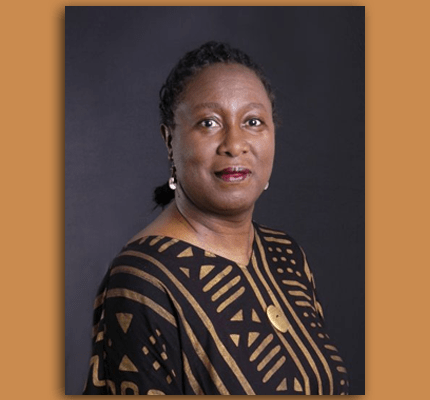
Five Questions with the Vice Chair of the NCA Women's Caucus
Elizabeth F. Desnoyers-Colas is an Associate Professor of Communication and Africana Studies and Communications Studies Coordinator at Georgia Southern University – Armstrong Campus in Savannah, Georgia, where she teaches graduate and undergraduate Communication courses. Her areas of research interests include African American preaching, storytelling and narrative, African American women’s role in the military, and the rhetoric of rap music performed by African American women. She is the author of Marching as to War: Personal Narratives of African American Women’s Gulf War Experiences, an oral history that highlights the lives of 13 African-American servicewomen who represent various facets of professional, sociological, and interpersonal experiences typified by black women during their service. Desnoyers-Colas is a retired U.S. Air Force Major who spent her distinguished 15-year career as a Public Affairs Officer. She was awarded the Defense Meritorious Service Medal upon her retirement from active duty.
- What effects have movements such as the Women’s March and #MeToo had on women in the Communication discipline?
Both of these historic events have especially given women in our discipline great opportunities to lend their voices to advance the needs and concerns of women, not only in our discipline, but in all walks of life. We have become a powerful rhetorical and literary conduit for strong statements of the rights of girls and women to proclaim our rights to be free, safe, and protected in our own spaces and in society. When you read the works of our colleagues, hear their spoken words, see them perform our truths… it’s a great time to be alive and be us.
- Your research focuses on African American rhetoric and storytelling and African American women. How does that focus intersect with recently emerging women’s issues?
I sometimes feel I was born telling stories, as this gift and skill is used frequently in my community. As I studied narrative, I found a great credo about Black women and story telling that I live by as a scholar. In her 1892 book, A Voice from the South, African American feminist and historian Anna Julia Cooper told African American women that they needed to gather their history and muster the creativity and ingenuity to develop and cultivate their own collective literary and rhetorical voice. Cooper’s fundamental fear was that Black women’s individual and collective life stories and experiences would be ignored and dismissed by white men and women, as well as by African American men. Cultivating the overall constructs of our personal narratives and stories gives Black women, really all women, their own voice and unique identity, bolstering their ability to tell and legitimatize their own stories to a multitude of audiences.
- Who do you think are the most inspiring women in the Communication discipline, and how they have influenced your research and teaching?
This is the type of question that can get a person in trouble. We have a plethora of scholars from all walks of life and foci in our discipline who have had an impact on my work. Julia Wood has taught me a lot about the richness of how people think and communicate, while Brenda Allen has helped me understand the nuts and bolts of organizational communication, especially as it pertains to people of color. Kimberly Moffitt, Amber Johnson, and Sheena Howard are phenomenal scholars I follow as an unabashed academic colleague and fan; I frequently recommend their works to my students.
- What advice do you have for young women getting started in the Communication discipline?
Read the empirical, peer-reviewed works. Read, and read some more. As a doctoral student, I just jumped into reading the works of our women scholars and was absolutely enthralled and challenged. Ask yourself, “What is my area of interest/focus?” Then, find yourself a woman scholar or two who can personally mentor you, answer your questions, even read your work about that area of the discipline. Find colleagues who share your research interests. Tweet and Facebook them. Some of the best empirical conversations I have are via social media with women Communication scholars.
- As the Vice Chair of NCA’s Women’s Caucus, can you share some of the group’s goals for 2019 and beyond?
One of our group’s goals is to involve more undergraduate and graduate students in our panels. We want to hear their concerns about the discipline, hear their voices, and discuss their works. We also want to reach out to far more women of color to make sure they feel their works are represented by the caucus and that their voices are heard. At the end of the day, we believe we speak for all women in our discipline. We will continue to do so and to be on the cutting edge of raising our voices, getting things done to advance women Communication scholars in every capacity imaginable. That’s what we do and will continue to do.

